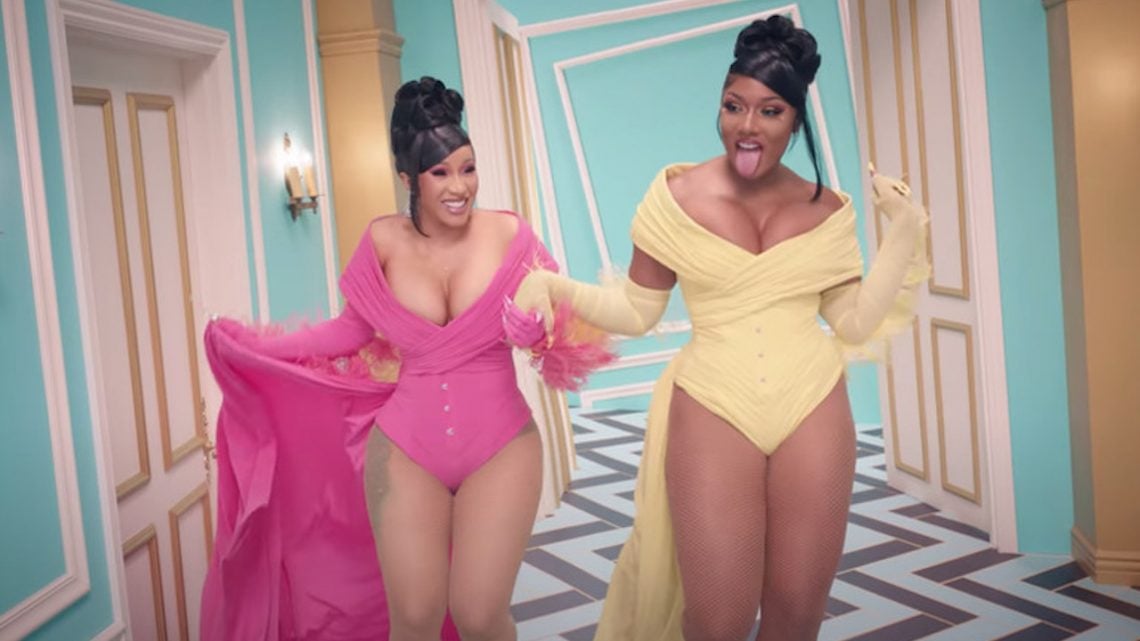Every so often, a song is released that has such a colossal impact that it changes the face of culture. 1991’s single by Nirvana, ‘Smells Like Teen Spirit’, is perhaps the most unmistakable entry in this category. In second, close behind it, is 2020’s ‘WAP’ by Cardi B and Megan Thee Stallion. A triumphant celebration of female sexuality, it would be an understatement to say it was polarising.
Before long, it became yet another front in the culture war, guiding those who want to believe into the manacle-free future. On the other hand, it left legions of conservatives on the brink of literal combustion, outraged at the current cultural juncture, and that two black women could rise to the top in such an unapologetic way.
Famously, ‘WAP’ stands for “Wet-Ass Pussy”, and if that is not enough to denote the stylistic pose of the song, then you’re in the wrong place. This, added to vivid sexual imagery where the pair describe how they want men to please them, and the sample of Frank Ski’s 1993 track ‘Whores in This House’, made it the biggest track of 2020, and one that is still being talked about nearly two years later. It was a number one hit globally, reaching the top spot in the US, Canada, UK, Australia, Germany and more.
They’d finally done it. Black women had finally conquered the globe, and to do it in such an iconoclastic way was incredible. ‘WAP’ became a sign of how far we’ve come, and a reflector of just how far many elements of society still need to come. It was certified sextuple platinum in America, and when the pair performed it at the 63rd Annual Grammy’s, it showed that in the year of George Floyd and Jacob Blake, Black America had united, and it is a powerful force not to be reckoned with.
Although Cardi and Megan were already icons of female sexuality, independence and dominance, the song confirmed them as the titleholders. ‘WAP’ became symbolic of how women were conquering the insidious misogyny they’d encountered everywhere since the dawn of time, and became an anthem for the birth of a new epoch. The age of misogyny and sexism was over, the age of female empowerment, and more importantly, Black female empowerment, was here.
Duly, the song drew the ire of many notable American conservatives like moths to the light. James P. Bradley, a California Republican, faced significant backlash when he wrote on Twitter, “Cardi B & Megan Thee Stallion are what happens when children are raised without God and without a strong father figure,” and that the song made him want to “pour holy water” in his ears. Bradley’s claims were swiftly found to be baseless, as Megan had a strong father figure, and Cardi is religious.
Another Californian politician, the Republican, DeAnna Lorraine, wrote: “Cardi B & Megan Thee Stallion just set the entire female gender back by 100 years with their disgusting & vile ‘WAP’ song”. Using it as part of the culture war, she then used the song to criticise her opponents in noting that Democrats Kamala Harris and Bernie Sanders had supported it.
Lorraine was lambasted for being a hypocrite. She could not encourage female empowerment but then undermine the cause by criticising a song performed by two women, particularly one that flipped the traditional gender roles on their head.
In an interview with GQ, Megan said: “Girl, you literally had to go to YouTube or to your Apple Music to go listen to this song in its entirety. How are you in your Republican world even finding your way over here to talk about this? You must not have no WAP if you’re mad at this song”.
The most memorable moment of ‘WAP’ causing the undoing of a conservative was when political ‘commentator’, Ben Shapiro, sarcastically attempted to unpick the song. “This is what feminism fought for,” he said in a video where he read some of the lyrics whilst self-censoring some of the others.
It didn’t end there, though. In what is now one of the biggest faux pas’ of recent years, Shapiro claimed that vaginal lubrication is primarily caused by “bacterial vaginosis, yeast infection, or trichomonas”. His claims were rubbish by prominent healthcare workers, including the gynaecologists Jen Gunter and Daniel Grossman. In attempting to undermine the song’s message, Shapiro ended up inviting volleys of questions regarding his ability to please his wife.
Showing just how times have changed, Cardi B wrote on Twitter,”I can’t believe conservatives soo mad about WAP”. Responding to an article discussing conservatives wanting the song banned, she said, “This is kinda iconic and I’m living for it.”
After the outrage from the right-wing, ironically, ‘WAP’ became much more than a song. It now held such a strong meaning that it wasn’t only to do with female empowerment but with racial, cultural, economic and social empowerment, too. The conservatives had shot themselves in the foot again, and perhaps if they’d have stayed quiet, the song might not have gone on to retain such a powerful and defiant message. ‘WAP’ had won this round of tug of war.
In being so explicit, ‘WAP’ showed the need for art and culture that is offensive. It sparks debate and new ideas, and the importance of this cannot be stressed enough. Cardi B and Megan Thee Stallion set the rulebook ablaze, and in the process, brought us into a different era. Women had not only taken over hip-hop but culture entirely. It is likely we’ll still be talking about ‘WAP’ for years to come.
Watch the iconic video for ‘WAP’ below.
